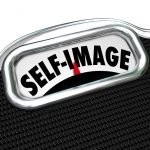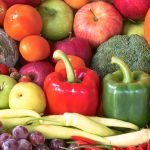JAMES SENSENIG, ND
CHARLEY CROPLEY, ND
This column is transcribed from a weekly live conversation produced by the Naturopathic Medical Institute (NMI). The goal of NMI is to preserve and promote the principles of naturopathic philosophy through clinical application, in your offices and in your communities, every day. This lightly edited transcript (by Judith Boice, ND, LAc, FABNO) is the second part of a 3-part conversation between Drs Jim Sensenig and Charley Cropley, which took place on May 3, 2017.
Unmasking Food Sensitivities
Dr Sensenig: You mentioned a woman that you placed on a fast during treatment for a bladder infection, that she then she broke the fast inappropriately, and then got very sick. Surely, we all have seen that. After many decades of practice, I’ve seen that a few times as well. I’ve also heard stories about people who have been on a fast, sometimes a lengthy one, who then end it inappropriately by having a pizza, a burger and fries, etc. Then they find themselves extremely, if not deathly, ill.
Dr Cropley: Fasting during an acute illness is very different from doing a fast for more generalized detox, wellness, or chronic conditions. You really run a risk during acute illness if you end it inappropriately.
Dr Sensenig: Here are foods – I’m using that word lightly because are pizza and fries really food? But here are foods people consume all the time without any problems. They “apparently” have no deleterious effects. So, on a fast, they’re away from those foods entirely for a certain period. Then, without thinking or without knowing better, they resume eating those foods. Suddenly, they’re extremely ill. What’s happening? What’s the phenomenon where a person can basically live on these things and then become ill after being away from them and reintroducing them like that? What’s going on?
Dr Cropley: There could be a number of mechanisms involved. One is food sensitivity or food allergies. The gold standard for discovering food allergies is the detoxification-elimination-provocation protocol. This is where you take certain foods out of the diet for a period of time. Then, after symptoms have been reduced or eliminated, systematically reintroduce them while observing the person carefully for any adverse reactions.
Most people say they don’t think they have any food allergies at all because they don’t have any obvious symptoms. But, when you unmask the body’s reaction by taking away certain foods for a period of time, and then especially if you heighten the sensitivity of the body with detoxification protocols – such as a juice fast – when you reintroduce certain foods, the body will react strongly and the truth becomes clear. This is how we can see whether wheat, milk, yeast, or any other problematic foods will work for someone or not. With the woman I mentioned earlier, her body reacted very strongly because of the detoxing, but because of the infection, breaking the fast improperly had more serious consequences.
It’s all part of individualizing a person’s diet. A method that every naturopathic doctor should know is how to individualize a person’s eating regimen by discovering specific foods that they are intolerant of. There are other ways of doing this, but “detox-elimination-provocation” is the main one where you aren’t just giving a generalized, “this is how to eat” type of advice, but actually helping people discover for themselves how their body relates to various foods.
Dr Sensenig: We have discussed numerous other times the various ways of finding out about food intolerances. I once had a patient come in who was diagnosed with rheumatoid arthritis based on swollen ankles after flying to Europe. When she came home, she went to a rheumatologist with slight stiffness in her hands and recounted the story of having swelling in her feet after a flight to Zurich. She told me that, based on her conversation with her doctor and the stiffness in her hands, she was diagnosed with rheumatoid arthritis. She had no positive lab values, no X-ray evidence, and nothing else on her physical exams. Nevertheless, she was diagnosed with rheumatoid arthritis, and she was told that she would have to start methotrexate because it was “obviously” an autoimmune issue.
That’s when she came to see me; she had read about the side effects of methotrexate. First, we changed her diet, even before doing some testing, and I also suggested a couple of other interventions. The reason I bring up this story is that by getting her off wheat, dairy, and yeast, she came back with no symptoms and she has had none since. She said that she had a situation where she ate one of those foods and some of the inflammation came back. She stopped that food and she got better. Her comment to me was, “Who knew that foods could affect us like that?”
Obviously, the average person doesn’t know. Certainly, most medical professionals don’t even know how foods can have such effects on the body. But anything you put into your body affects your body. The fact that foods can have both a nourishing effect and an adverse effect is not part of the discussion. So, we have people like that woman who are essentially saying, “Who knew that what I’m eating could affect me?” When you really think about it, how could it not!
The Basis for Self-Healing
Dr Cropley: That kind of thinking is ignorance, which is also one of the root causes of disease. Ignorance, indifference, and lack of self-control are all contributors. In this case, we’re referring to ignorance. When people deny they’re living in a paradigm of disease that is really limited, it produces a great deal of harm. They are ignorant of the real causes of disease, the real causes of their suffering.
Our work as teachers and as naturopathic doctors is to instruct people so they can clearly see the relationship between things like their eating and their health. What I love is that I get to delve deeply into these topics with patients. In this case with the woman with rheumatoid arthritis, I would also ask her to interpret her illness in terms of a caring message from her body about the ways that she performs her vital functions every day. When I say, “vital functions,” I am talking about her eating, her movements, rest, the way she uses her mind, talks to herself, the emotions that she indulges in, the quality of her relationships, and the stress or intimacy she experiences in her personal life and in her career. Each of these actions is something that people must perform – do perform – every day, and these actions have consequences. People are either engaged in healing or they are producing affliction and disease in themselves through these kinds of daily actions.
When I look into these issues, my work is to teach patients, not just intellectually, but to give them assignments in eating, movement, self-reflective practices, and relating. I teach my clients skillful actions, as opposed to unskillful actions, so they learn to dispel ignorance. Given some of these tools, patients can then face the challenge of being able to govern their own behavior wisely. That challenge of being able to govern our behavior is my particular passion because that’s what drives humans back into our innate self-healing capacity. It drives us back into the Vis to find the passion and the personal honesty to be able to heal our own behavior. As we say, healing begins from the inside out and from the highest to the lowest. Healing illness in the body requires uncovering and addressing how we use our bodies and how we use our minds every day.
I tell my clients what is going to happen to them during their self-healing process – they are going to strengthen and develop a greater love and a greater understanding of themselves. The real object of self-healing is that it is the patient who performs the necessary actions through being kind to themselves and learning to really love themselves. This love then becomes expressed in their eating, movement, thinking, and relationships. Then it gets expressed in their body as healing.
Dr Sensenig: There are a number of principles we keep coming back to – universal principles that we want to assert are the foundation of a rational medicine. You just spoke of a whole bunch of them. I want to talk more about the unity of disease. All diseases stem from the same thing. If we use Lindlahr’s words, we’re talking about disease resulting from violating the laws of nature. If we go from Kent’s point of view, which is similar to yours, he talks about behavior. He talks about how the immaterial, vibratory, and nonphysical part of us is where disease starts and can end up residing. That means disease can start based on the way we think and how that can affect behavior. That is not exactly obvious from reading Kent. But, when you read between the lines, he talks about how everything starts with the willingness for something to happen, then there’s the “thinking” about it, and only then can an action be taken. Right there, in this way, Kent is essentially talking about self-discipline and learning to govern one’s own behavior.
Also, your mentioning that the healing comes from within, from the top down, from the inside out – this universal law is applicable everywhere. How do you begin to approach a patient with those concepts that you just talked about? Where do you start? What do you do?
Where To Begin
Dr Cropley: First of all, my intake forms reflect the work that I do. Everything that I do, even my website, reflects my approach to illness and disease. This way, I have a prescreened audience that comes to me.
I also ask a lot of questions. In my forms, I have my clients keep a 7-day eating journal, and I have questions about the exercise they do. Not just if they exercise, but if they’ve ever had a sustained period of time in their life when they were consistent, if they have a history of athleticism, or if they have been otherwise working with exercise over time. I also ask them if they have a present exercise routine, including for how long, what they do, and how many times per week.
Then I ask them about their thoughts. I ask them how skilled they are in directing their own self-dialogue in a caring manner – rather than a critical or anxious manner. I ask them how skilled they feel at healing afflictive emotions. I ask them how happy they are in their relationships. I ask them similar questions about their skill in being able to listen and deeply understand another person during times of conflict. Finally, I ask them about their financial health and their satisfaction with their work.
My forms raise these questions. Most people say to me at the end that they appreciated going through the forms, that it had been an educational and insightful experience for them, so that’s one to begin.
We Are the Medicine
Dr Cropley (cont’d): I started as a primary care doctor, an eclectic naturopathic physician using pretty much all of the modalities I could. Now, I’m more of a teacher. I’m working in collaboration with primary care naturopathic doctors so that they’re doing the “medicinal” aspects of patient care, and I’m doing the educational aspects of it.
When I sit with my clients, I say to them right up front, and all the way through, that my work with them is to teach them what they can do for themselves. I teach the art of self-healing. In particular, I say that we’re going to examine their illness and look for possible causes in the ways they’re eating, moving, thinking, and relating. Then we will work together to develop the power and ability for them to change these behaviors, and thereby change their illness.
I’m very aware of the fact that we are the medicine. That’s not to be egotistical at all. As an elder in this profession, I recognize that patients come to me – and they don’t necessarily know this – because I ask questions that other doctors don’t. They also come to me for my judgment. I can make judgments, after almost 40 years in practice, that others cannot. As an elder naturopathic physician, these are distinctions that I offer people.
By my being the medicine, I mean that, when I have conversations with people, it’s like magic to me. I’m an opening for these conversations, and patients feel that. Our discussions go in directions that are often unforeseeable. I know the same is true for many other naturopathic physicians.
Also, when I say that I’m the medicine, I am saying that when Charley Cropley dies, that medicine is gone. Somebody else may be a pupil of mine and carry on part of it, but we are each unique expressions of our medicine. As naturopathic doctors, we know what we can do with a patient. When we do our workups, we have an understanding of our power and what we can bring about with our methodologies. That is a different thing than trying to standardize everything into a set of protocols. I find it helpful to remember and appreciate this fact regularly.
This column, based on the Vital Conversations of the Naturopathic Medicine Institute, will continue in next month’s NDNR.
[Bios]:
James Sensenig, ND, was a 1978 graduate of NCNM in Portland, OR. For over 40 years he maintained an eclectic practice in Hamden, CT. Over the years, Dr Sensenig held prominent positions in the various naturopathic colleges and the AANP. A champion of classical naturopathic medicine, Dr Sensenig received an Honorary Doctor of Naturopathic Philosophy degree from CCNM, and received numerous awards for his dedication to teaching the principles of naturopathic medicine.
Charley Cropley, ND, graduated from National College of Naturopathic Medicine in 1979. He has been a practicing naturopathic doctor, teacher, and author in the Boulder/Denver area for the last 35 years. Dr Cropley has trained hundreds of doctors in his methods of nutrition and Self-Healing. He is the author of numerous articles, several books, and courses. Dr Cropley frequently lectures at the colleges of naturopathic medicine, and is widely regarded as one of today’s leading thinkers and teachers in the philosophy and practice of Self-Healing. His methods of Self-Healing are complementary and strengthen all forms of medicine and therapy.





